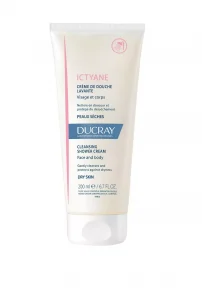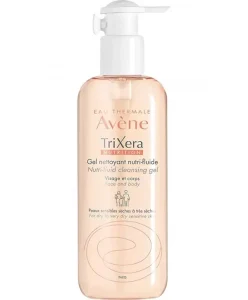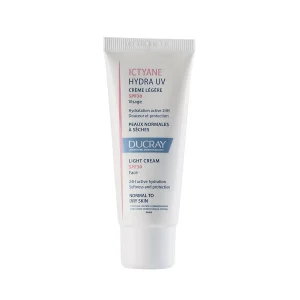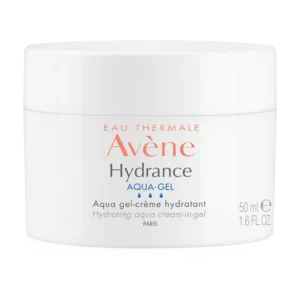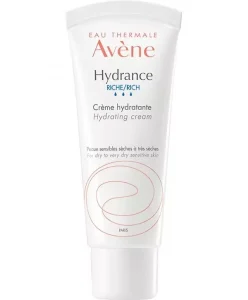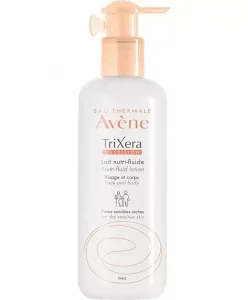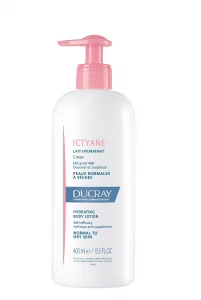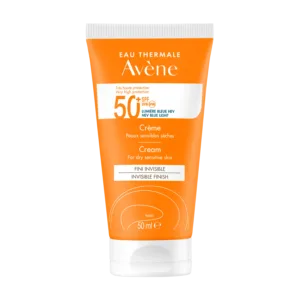
As the sun shines brightly and temperatures soar, your skin is exposed to a whole new set of challenges. The summer season brings endless adventures, but it also poses risks to your skin’s health and vitality. From the intense heat to the ongoing humidity, your skin can easily dry out and lose its natural radiance.
But fear not! In this article from The Dermo Lab and in collaboration with the dermatologist Dr. Dima Ahmad, we’ll share with you the key to maintaining a vibrant, hydrated complexion that defies the harsh elements of summer. Get ready to plunge into a world of beauty and hydration by discovering the secrets to nourishing and satisfying your skin’s thirst during these sun-kissed months.
How do summer weather conditions affect skin hydration levels?
Summer weather conditions can have a significant impact on skin hydration levels due to several factors:
- Increased heat: High temperatures cause your skin to lose moisture more quickly. Heat can disrupt the skin’s natural moisture barrier, leading to dehydration and dryness.
- Intense sun exposure: Prolonged exposure to the sun’s UV rays can damage the skin’s protective barrier, leading to increased water loss. This can lead to dry, parched skin and exacerbate the signs of aging.
- Excessive sweating: In summer, the body naturally sweats more to regulate temperature. Sweating is the body’s way of cooling itself, but it can also contribute to losing water and electrolytes from the skin. If not adequately replenished, your skin can become dehydrated and unbalanced.
- Environmental factors: Summer activities often expose you to harsher environmental conditions, such as chlorinated pools, salt water, and air conditioning. These factors can further reduce your skin’s moisture levels and upset its natural balance.
What are the potential skin risks associated with increased heat and humidity?
Increased heat and humidity can lead to a number of skin problems. Here are a few common problems you may encounter during the summer months:
1- Dehydration and dryness: Despite the idea that humidity is synonymous with hydration, prolonged exposure to high temperatures and humidity can actually reduce the skin’s moisture levels. This can result in dry, rough, and flaky skin, especially if adequate moisturizing measures are not taken.
2- Thermal erythema: Thermal erythema occurs when sweat is trapped under the skin due to obstruction of the sweat ducts. It appears as small, red, itchy bumps or blisters and is most common in areas where clothing rubs against the skin, such as the neck, chest, and groin.
3- Sunburn: Increased heat often means spending more time outdoors, which increases the risk of sunburn. Unprotected exposure to the sun can damage the skin, causing pain, redness, and inflammation. Over time, repeated sunburn can contribute to premature aging and increase the risk of skin cancer.
4- Hyperpigmentation: The combination of heat and UV exposure can trigger an overproduction of melanin, resulting in hyperpigmentation or dark patches on the skin. These spots may be more pronounced and take longer to fade during the summer months.
5- Fungal infections: The hot, humid environment created by increased heat and humidity can promote the growth of fungi on the skin.
6- Exacerbation of existing skin conditions: People with pre-existing skin conditions such as eczema, psoriasis, or rosacea may find their symptoms worsened by hot, humid weather.
What are effective skincare practices for optimal summer hydration?
To achieve optimal skin hydration in summer, consider implementing the following effective skincare practices:
1- Cleansing: Use a gentle cleanser suited to your skin type to remove dirt, sweat, and excess sebum without stripping away essential moisture. Opt for a cleanser containing moisturizing ingredients such as glycerine or hyaluronic acid to help maintain the skin’s moisture levels.
When you have dry skin, it’s essential to find a gentle, non-comedogenic, moisturizing cleanser. The wrong cleanser can potentially dry out your skin even more. That’s why we’ve rounded up the most recommended cleansers for dry skin.
Ducray Ictyane Cleansing Shower Cream
Eau Thermale Avène TriXéra Nutrition Nutri-Fluid Cleansing Gel
2- Exfoliation: Regular exfoliation helps remove dead skin cells and unclog pores, enabling the skin to better absorb moisturizing products. Choose a gentle exfoliant suited to your skin type to avoid over-exfoliation and irritation.
3- Moisturizers: Opt for lightweight, oil-free moisturizers that provide adequate hydration without feeling heavy or greasy on the skin. According to Dr. Dima Ahmad, three moisturizing ingredients should be incorporated into your skin care routine: humectants, emollients and occlusives.
- Humectants (hyaluronic acid, glycerin) are substances that bind water in the skin’s outer layer and should be used in conjunction with the other ingredients to maintain the moisture content they provide.
- Emollients (squalane, ceramides, fatty acids) contribute to the skin’s barrier function, resulting in an overall improvement in skin texture and appearance.
- Occlusives (petrolatum, beeswax, mineral oil) are oils and waxes that form an inert layer on the skin and physically block transepidermal water loss, the process by which water evaporates from the skin.
Here are the top moisturizing products that keep your skin type soft and silky all year round.
For the face:
Ducray Ictyane Hydra UV Light Face Cream SPF 30
Eau Thermale Avène Hydrance Aqua-Gel
Eau Thermale Avène Hydrance Rich Hydrating Cream
For the body:
Expand your moisturizing routine beyond the face and pay attention to the rest of your body. Use moisturizing body lotions or creams after your shower to keep your skin soft and supple.
Eau Thermale Avène TriXera Nutrition Nutri-Fluid Lotion
Ducray Ictyane Hydrating Body Lotion
4- Sun protection: According to Dr. Dima Ahmad, when your skin is exposed to UV rays without protection, the rays can damage and even kill skin cells. This can lead to dryness and pigmentation of the skin. When the skin’s outer layer is damaged by UV exposure, it thickens and dehydrates, resulting in rough, flaky skin. That’s why you should always use broad-spectrum sunscreen every day.
The secret to finding the right sunscreen is to look for nourishing ingredients. Discover the best facial sunscreen for dry skin.
Eau Thermale Avène Very High Protection Cream SPF50+
5- Hydration from within: Don’t forget to hydrate from within by drinking plenty of water throughout the day. Hydration starts on the inside, so be sure to drink enough to promote your skin’s overall health and hydration. Keep a water bottle with you to remind you to stay hydrated, especially on hot summer days.
6- Protect your lips: Don’t forget to take care of your lips, as they can become dry and chapped during the summer. Use a lip balm with SPF to protect them from the sun, and opt for moisturizing formulas containing ingredients like shea butter or coconut oil.
Remember, consistency is key when it comes to skin care. Stick to a regular routine and adapt your products and practices according to your skin’s needs and the specific challenges posed by the summer climate.
What lifestyle changes promote skin hydration?
In addition to skin care, certain lifestyle changes can promote hydration and overall skin health. Consider incorporating the following habits into your routine:
- Maintain a balanced diet: According to Dr. Dima Ahmad, dry skin can be aggravated by a diet rich in fats and sugars, as well as alcohol and tobacco consumption, particularly during the summer months. You can prevent skin dryness by eating water-rich foods (such as fruit and vegetables) and increasing your fluid intake.
- Limit your alcohol and caffeine intake: Alcohol and caffeine can dehydrate the body and, consequently, the skin. Limit your consumption of these beverages and compensate by increasing your water intake to counteract their dehydrating effects.
- Manage your stress levels: Chronic stress can affect the skin’s barrier function and lead to dehydration. Practice stress management techniques such as exercise, meditation, deep breathing, or doing activities that bring you joy. Taking care of your mental well-being can have a positive impact on skin health.
- Get enough sleep: Lack of sleep can compromise your skin’s hydration and overall health. Aim for 7-8 hours of quality sleep each night to allow your body to repair and regenerate.
- Avoid showers that are too hot: Hot showers may seem soothing, but they can strip skin of its natural oils and lead to dryness. Opt for lukewarm water instead, and limit the length of your shower to avoid over-drying the skin.
- Humidify your environment: If you live in a dry climate or spend a lot of time in air-conditioned spaces, consider using a humidifier to add moisture to the air. This will prevent excessive evaporation of moisture from your skin.
By adopting these lifestyle changes, you can support your skin’s hydration and overall well-being, improving the effectiveness of your skincare routine and promoting a healthy, radiant complexion.
Conclusion:
As the sun sets on this captivating exploration of skin hydration in summer, armed with new knowledge and skincare wisdom, you’re ready to conquer the season with a radiant complexion. Embrace the power of hydration, from external skincare rituals to internal nourishment, and protect your skin from the sun’s rays. Make this summer a testament to your commitment to self-care and the beauty that radiates from within. Get ready to unleash your skin’s true potential and revel in the unparalleled radiance that can only come from optimal hydration. It’s time to shine and welcome summer with a complexion that captures the essence of vitality and luminosity. Enjoy the glow of summer and let your skin’s thirst be forever satisfied!
